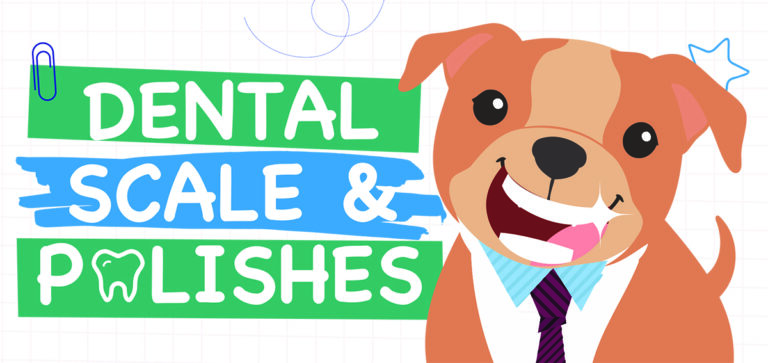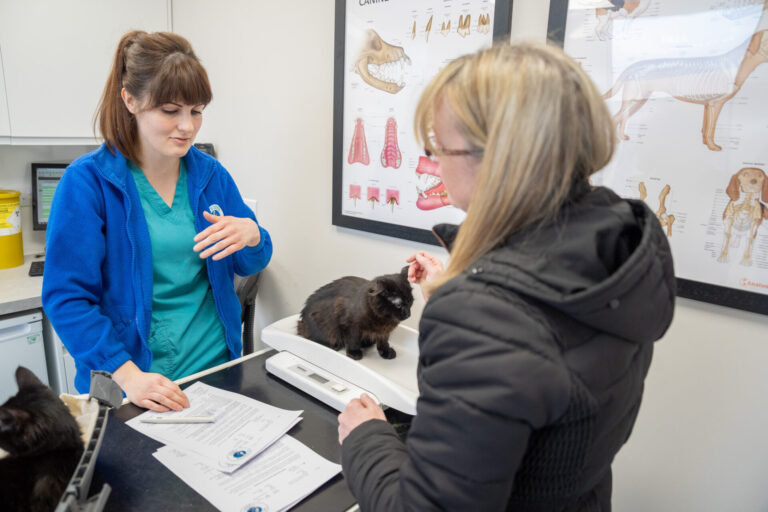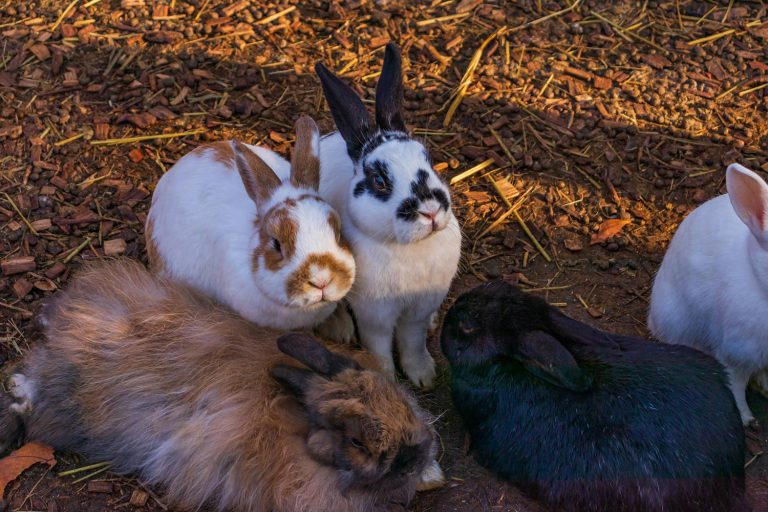
As the summer draws to a close and the back-to-school season begins, it’s the perfect time to focus on your pet’s health – starting with their smile!
This September, St Kitts Vets is excited to offer an exclusive Dental Scale & Polish service at our Hartley Wintney branch, all at a special discounted price of just £250.
Just like humans, pets are susceptible to dental problems such as plaque buildup, tartar, and gum disease. If left untreated, these issues can lead to more severe health concerns, including infections, tooth loss, and even systemic illnesses. Our Dental Scale & Polish not only cleans your pet’s teeth but also helps prevent these problems from developing in the first place. Regular dental care is essential for maintaining your pet’s overall health and wellbeing.
Our comprehensive dental service is designed to give your pet a healthy mouth and a bright, clean smile. Here’s what you can expect:
To make sure your pet is a good candidate for our Dental Scale & Polish, we’re offering a FREE Pre-Scale & Polish Dental Check with one of our experienced veterinary nurses. This preliminary check will allow us to assess your pet’s dental health and discuss any specific concerns you may have.
Whether your pet is gearing up for back-to-school photos or simply needs a thorough dental cleaning, our September offer is the perfect opportunity to give them the gift of a healthy smile. Don’t miss out – this exclusive discount is only available at our Hartley Wintney branch throughout September.
To schedule your free pre-check and take advantage of this limited-time offer, call us on 01252 844044 or visit our Hartley Wintney branch today.

Regular vet check-ups are crucial for several reasons, all of which contribute to your pet living a long, healthy and happy life. During these routine appointments, your vet will be on the lookout for symptoms of illness, internal health issues and other conditions that may need addressing.
Here, our team at St Kitts Vets explain what makes regular check-ups so important.
Unlike us, pets can’t communicate when they are feeling unwell or experiencing discomfort. During a routine check-up, our vets will perform a thorough examination to identify any potential health problems early on. Early detection allows for timely intervention and treatment, which can significantly improve the outcome and may even save your pet’s life.
Prevention is always better than cure. Regular vet check-ups help ensure that your pet is up-to-date on vaccinations, parasite prevention, and other essential preventive measures. This significantly reduces the risk of your pet contracting avoidable diseases and infections.
Every pet is unique, and their healthcare needs may vary based on factors such as breed, age, lifestyle, and pre-existing conditions. During check-ups, our vets can provide tailored health recommendations, including dietary advice, exercise plans, and behavior tips, to help your pet live a healthier and happier life.
Dental problems are common in pets and can lead to serious health issues if left untreated. Regular vet check-ups will mean your pet’s teeth, mouth and gums can be given a quick once over to help maintain good oral health.
As pets age, they become more susceptible to certain health conditions, just like humans. Regular check-ups for senior pets allow us to monitor their health closely, catch age-related issues early, and provide appropriate senior pet care to improve their quality of life.
Pet obesity is a significant concern, as it can lead to various health problems. During vet check-ups, your pet’s weight can be monitored, and our vets and nurses can offer guidance on proper nutrition and weight management if needed.
No one likes visiting the doctor or the dentist, pets included! However, regular visits are a great way to help your pet become familiar and comfortable with the clinic environment and our team. This will help to reduce stress and anxiety during subsequent visits.
Many countries have specific requirements for vaccinations and animal health certificates when traveling or moving with pets. Regular vet check-ups ensure your pet’s vaccinations and paperwork are up-to-date, making travel and relocation hassle-free.
As a member, you get two FREE health checks per year – one with a vet during your pet’s booster appointment, as well as one with a nurse 6 months later.
Other excellent benefits include:
And more!
*Tick control included with Plus Plans only.
**One nail trim included with Standard Plans.
You can find out more about our Pet Healthcare Plans here.
You can book a check-up with our team online, or by getting in touch with your local practice:
St Kitts Vets Hartley Wintney: 01252 844044
St Kitts Vets Basingstoke: 01256 844944
Crookham Park Veterinary Centre: 01252 913990
Firgrove Veterinary Centre: 01252 877799

For some pets (and their owners), a trip to the vet can be daunting; conjuring up a mixture of emotions, from feeling anxious and nervous, to stressed. But it doesn’t have to be that way!
In this blog, we’ve put together some top tips to ease your pet’s anxiety, so your next trip is as calm and stress-free as possible:
A good place to start is getting your pet used to being handled, so it doesn’t come as a shock at their appointment.
It’s worth performing mock examinations at home, inspecting their paws, teeth and ears on a daily basis. As well as touching their legs, head, chest and lifting their tail. Giving them a massage and lots of positive reinforcement can help to make it an enjoyable experience.
Once your pet is comfortable with you handling them, ask family members or friends to do the same, to help them get used to different people.
If you’ll be using a crate to transport your pet to the vets, start introducing them to it early on to minimise any anxiety.
Leave the crate in a safe place, like your living room or bedroom, with the door open and toys or treats inside, so your pet can enter the crate freely.
It may take days or weeks until they are comfortable and confident to enter willingly. Make sure it is a positive experience, so don’t force them into the crate, or leave it until the day of the vet’s visit.
Try to take your pet out in the car to visit different locations, so they don’t just associate getting in the car with a trip to the vets.
To make the trip to the vets easier, it’s beneficial to familiarise your pet with the setting – from the smells, to the experience of being with other animals and staff. A good way to do this is to attend regularly for non-invasive, routine check-ups, like getting your pet weighed. You can even ask your local St Kitts practice if you can pop in to get your pet used to the environment, when it’s not too busy.
If your pet is particularly anxious and it worsens around other animals or humans, it’s a good idea to try and book your appointment for a quieter time of day. It will also mean less waiting time, which will help to reduce stress levels.
It’s good to come armed with plenty of your pet’s favourite treats to reward calm behaviour. This positive reinforcement works best after they’ve had their checks and treatments, but can be given for entering the crate willingly, being well-behaved on the journey and waiting nicely, to help alleviate any stress from the situation.
Your pet can pick up on any anxious behaviour, so keeping your body language and voice calm will help to reassure your pet.
Try to avoid stressful situations too; leaving plenty of time to get to your appointment is a simple way to reduce stress on the day.
Packing a toy, their usual blanket or bed, will provide a familiar smell of home, which can be soothing for your pet, especially if they are having a longer stay.
Bringing your pet’s favourite toy can help to distract them during the appointment, especially if they are having a procedure done, like a temperature check.
If your pet finds being at the vets stressful, turn it into a positive experience by taking them outside to play and have fun together – just ask to be called when it’s your turn.
Having distance from other anxious animals will help to keep your pet calm, so instead of waiting inside for your pet’s prescription or medication, head outside to play again and keep the experience positive.
You can book an appointment online for your local St Kitts practice or, alternatively, give one of our branches a call to speak with the team.
St Kitts Veterinary Centre: 01252 844044
Basingstoke Veterinary Centre: 01256 844944
Crookham Park Veterinary Centre: 01252 913990
Firgrove Veterinary Centre: 01252 877799

With their long ears, fluffy tails and adorable hopping, rabbits make wonderful pets and remain a firm favourite amongst families. However, they’re pretty complex creatures and there is so much to learn about them, so we’re sharing some facts about rabbits that you might not know below.
Getting your rabbit a friend is one of the best things you can do to make their life a happy and fulfilled one. They’re extremely sociable animals, often living in big groups in the wild, and thrive with the company they keep. The best combination is often a neutered male and neutered female.
Many well-looked after rabbits can live for 8-12 years, making them great long-term companions.
Rabbit teeth continue to grow throughout their lives, and should be worn down by chewing on grasses, wildflowers and vegetables so they don’t get too long.
Once their eyes do open, they have almost 360-degree vision thanks to the structure of their eyes and placement on the skull, meaning they can be very difficult to sneak up on.
Without the ability to sweat or pant, rabbits are at high risk of heatstroke. Wild rabbits regulate body heat by staying in burrows on warm days, only emerging when the temperature drops. To help keep your rabbits comfortable, make sure they always have places to stay cool.
Signs of heatstroke include (but aren’t limited to):
If you think your rabbit is experiencing heat stroke, contact your local vet right away.
Bugs Bunny has some explaining to do! Rabbits mainly eat hay and/or grass, along with small, measured amounts of leafy greens and pellets. Surprising to many people, root vegetables and fruit aren’t a natural part of their diet, as many are high in sugar and should only be fed in small amounts as occasional treats.
Rabbits are crepuscular, which simply means they’re most active at dawn and dusk. They love a good snooze during the day, which leads many people to wrongly assume they’re nocturnal, but if you check on your furry friend at sunset you’ll probably find that they’re in the mood to play!
If your rabbit is leaping or hopping and performing twists and kicks in mid-air, it’s known as ‘binkying’ and happens when they feel really happy or excited.
A rabbit’s ears serve two key functions. The first – and most obvious – is to help them monitor their environment and detect predators. Domestic breeds can rotate their ears 180 degrees, which means they’re able to pinpoint the exact location a sound is coming from. The second function is to help them regulate their temperature, using the ear’s large surface to prevent heat stroke and hypothermia.
Rabbits need access to plenty of fresh water at all times and will often drink more than a dog that is 5 times their size. It helps to keep everything moving in the gut, flush out excess calcium and keep their bodies healthy in general.
For more advice on your rabbit, or for any other concerns you may have, please get in touch with your local St Kitts practice.
St Kitts Veterinary Centre: 01252 844044
Basingstoke Veterinary Centre: 01256 844944
Crookham Park Veterinary Centre: 01252 913990
Firgrove Veterinary Centre: 01252 877799